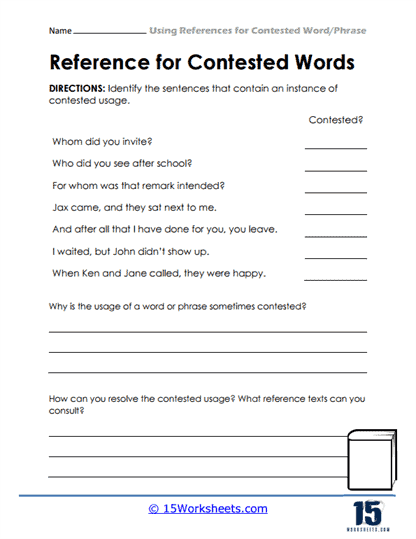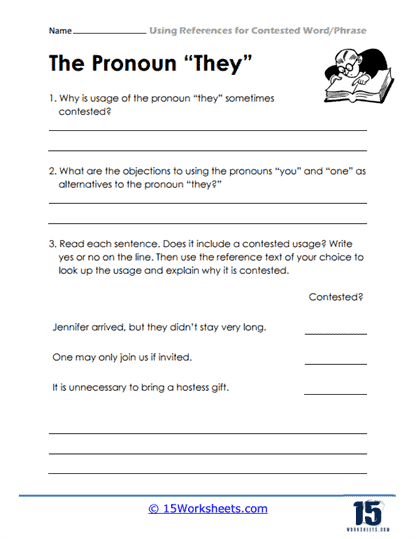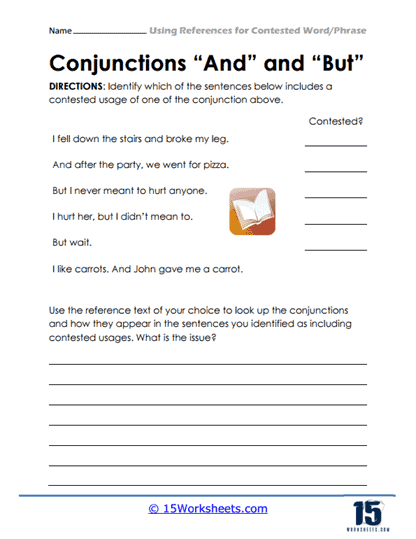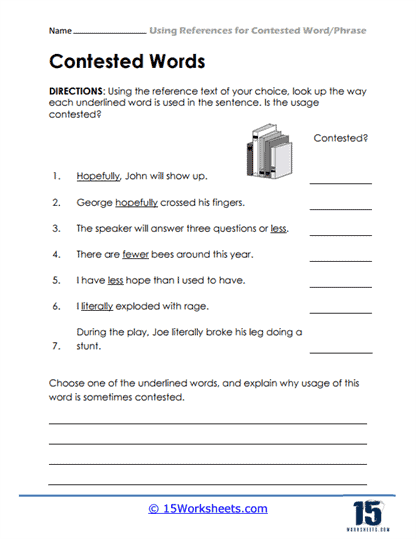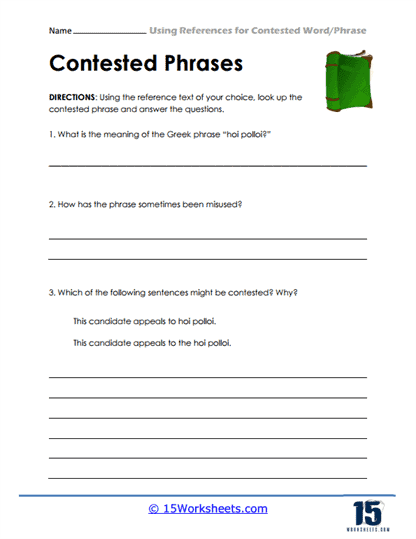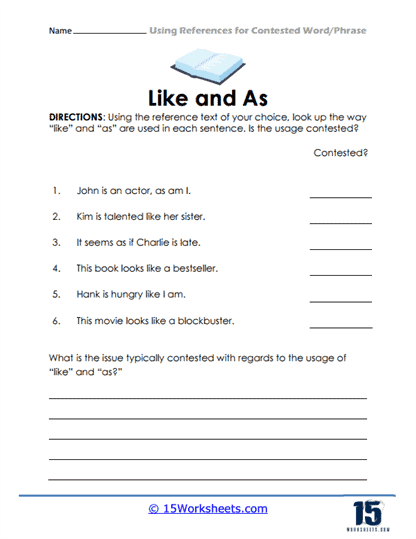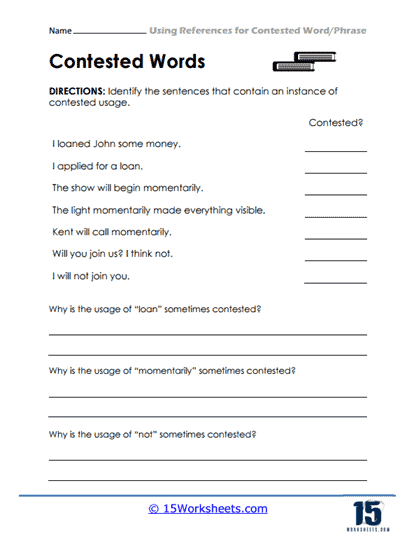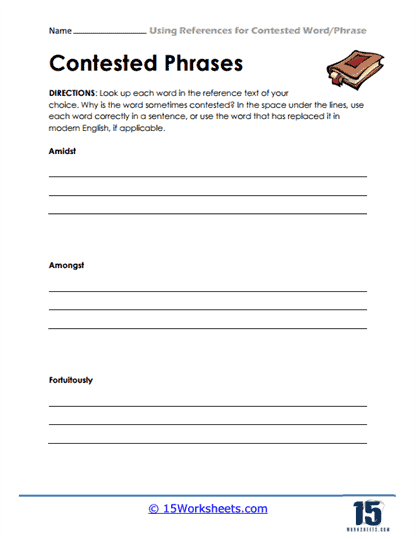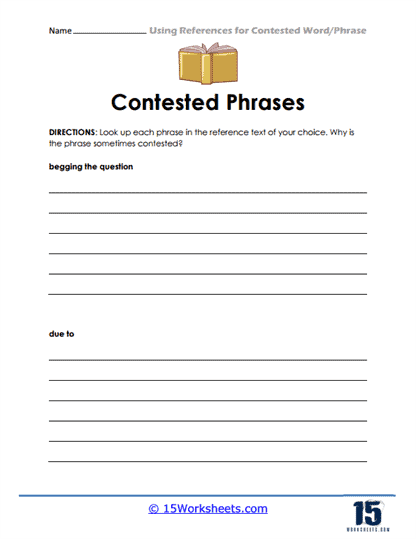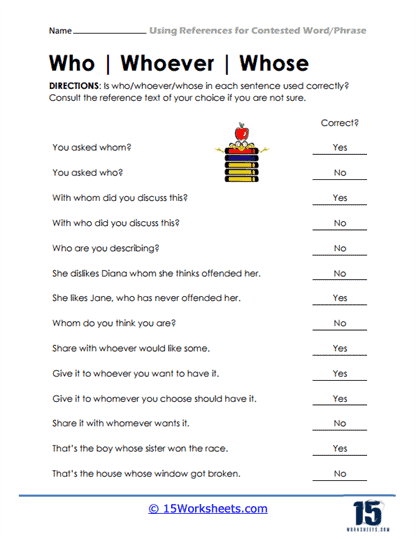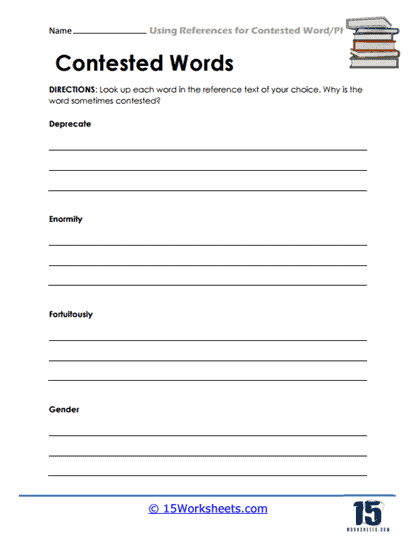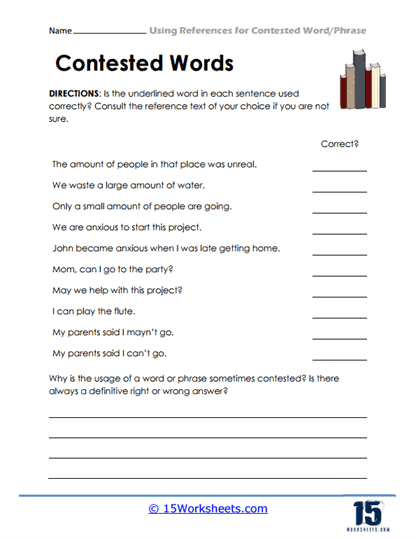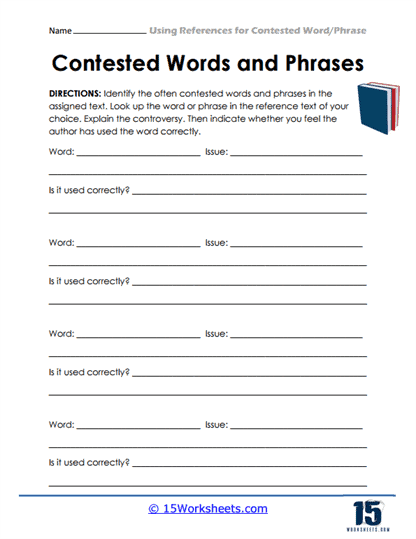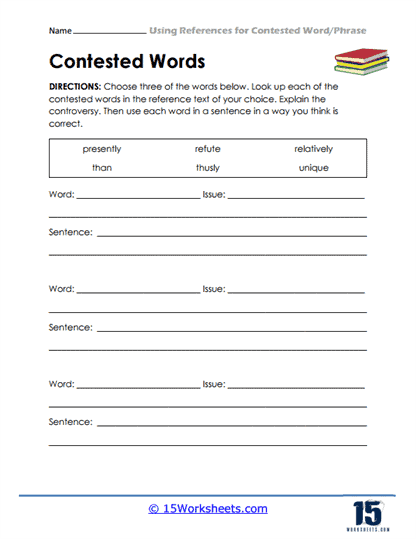Contested Words Worksheets
All About These 15 Worksheets
This series of 15 worksheets is designed to help students learn and understand contested words, which are words or phrases that have multiple meanings and can be interpreted in different ways depending on the context. Learning contested words and phrases can be extremely beneficial for students in a number of ways.
Learning contested words can help students develop their critical thinking skills. It requires them to analyze language and understand the context in which words are used. They learn to look beyond surface-level meanings and understand how different interpretations of a word can have different implications.
It also helps students become more effective communicators. By understanding how different interpretations of a word can affect the meaning of a message, students can learn to choose their words more carefully and communicate more effectively. Moreover, learning contested words can help students become more culturally aware. Language is heavily influenced by culture and society, and contested words can reveal important cultural and societal issues. By studying contested words, students can gain a deeper understanding of different cultures and perspectives.
Lastly, learning contested words can help students develop their language skills. By studying how words can have multiple meanings and interpretations, students can learn to expand their vocabulary and become more skilled at understanding and using language.
Overall, learning contested words is an important aspect of language learning that can have significant benefits for students. By understanding the complexities of language, students can become more effective communicators, critical thinkers, and culturally aware individuals.
What are Contested Word or Phrases?
When people communicate, they do so with the understanding that certain words and phrases have specific meanings. However, there are also many words and phrases that are contested, meaning that there is no agreement on their definition or usage. This can lead to misunderstandings and conflict, as people interpret these words in different ways. These words are known as contested words.
When people communicate, they do so with the understanding that certain words and phrases have specific meanings. However, there are also many words and phrases that are contested, meaning that there is no agreement on their definition or usage. This can lead to misunderstandings and conflict, as people interpret these words in different ways. These words are known as contested words.
Contested words and phrases can be found in all areas of life, from politics to religion to popular culture. They often arise when people have different worldviews or experiences, and they can be a source of great tension and division. While it is impossible to eliminate all contested words and phrases, it is important to be aware of them.
The Evolution of Contested Words in English Language
The English language is always evolving, and new words are added to the dictionary on a regular basis. However, not all new words are embraced by the general public. In fact, many words are hotly contested, with some people arguing that they are nothing more than jargon, while others believe that they are essential to properly communicating in the modern world.
For example, the word “crowdsourcing,” was first coined in 2006, and it describes the practice of soliciting input from a large group of people, typically via the internet. Although the term has been widely used in recent years, it has also been criticized as being needlessly complicated and confusing.
Similarly, the word “unfriend” was added to the dictionary in 2009, but it has been met with resistance from many who feel that it is too informal to be used in serious contexts.
As the English language continues to evolve, it is likely that these kinds of contested words will become more common. Ultimately, it is up to each individual to decide whether or not to use them.
How to Avoid Using Contested Words or Phrases in Your Writing
In today’s political climate, there are a lot of words and phrases that can be considered contested. This can make it tricky to know what to say and how to say it without offending someone. Here are a few tips on how to avoid using contested words or phrases in your writing:
Be aware of the words and phrases that are considered contested. This will vary depending on who you are talking to and what the context is. If you’re not sure whether a word or phrase is contested, err on the side of caution and avoid using it.
Use neutral or uncontested words and phrases instead. For example, instead of saying “illegal immigrants,” you could say “undocumented workers.” If you absolutely must use a contested word or phrase, be sure to explain what you mean by it. This will help to avoid any misunderstanding.

